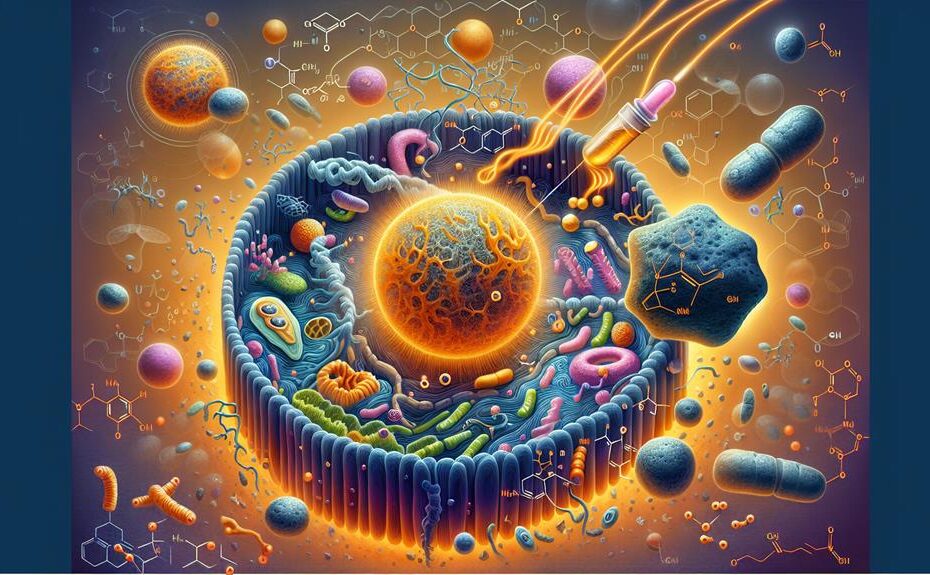







Biotin, or Vitamin B7, is essential for metabolic processes in your body. It aids in energy production by supporting ATP generation, which fuels cellular functions and maintains overall energy levels. Biotin plays a pivotal role in carbohydrate metabolism, enhancing glucose uptake and insulin sensitivity. Additionally, it assists in protein synthesis for muscle building and supports fatty acid metabolism for energy production and lipid synthesis. By acting as a cofactor for essential enzymes, biotin drives metabolic reactions important for your health. Understanding how biotin contributes to these processes can optimize your overall metabolic well-being.
Key Takeaways
- Biotin is essential for ATP production, supporting cellular energy levels.
- It aids in carbohydrate metabolism, enhancing glucose uptake and insulin sensitivity.
- Biotin assists in protein synthesis for muscle building and hair growth.
- Plays a crucial role in fatty acid metabolism, energy production, and lipid synthesis.
- Acts as a cofactor for enzymes, supporting metabolic reactions and healthy hormone balance.
Biotins Role in Energy Production
Biotin plays an essential role in energy production within the body by serving as a coenzyme in various metabolic processes. Specifically, biotin is critical for ATP production, which is the primary energy carrier in cells. ATP is indispensable for powering numerous cellular functions and processes. Biotin's involvement in ATP production highlights its significance in maintaining overall energy levels within the body.
Moreover, biotin plays a pivotal role in supporting mitochondrial function. Mitochondria are often referred to as the powerhouse of the cell since they are responsible for generating the majority of ATP through processes like oxidative phosphorylation. Biotin is indispensable for certain enzymes involved in mitochondrial energy production, emphasizing its direct impact on cellular energy metabolism.
Biotin and Carbohydrate Metabolism
In the domain of metabolic processes, the role of biotin in carbohydrate metabolism is essential for facilitating energy production from carbohydrates. Biotin plays a critical role in enhancing insulin sensitivity, which is important for the efficient uptake of glucose by cells. Improved insulin sensitivity enables better regulation of blood sugar levels, preventing spikes that can be harmful to overall health. Moreover, biotin is involved in glycogen storage, a form of glucose storage in the liver and muscles that serves as a readily available energy source when needed. By influencing glycogen synthesis and breakdown, biotin helps that energy is efficiently stored and released as required by the body's metabolic demands.
Studies have shown that biotin supplementation can positively impact glucose metabolism, helping to maintain stable blood sugar levels and support overall metabolic health. Adequate biotin levels are crucial for proper carbohydrate metabolism, highlighting the importance of this vitamin in energy production and utilization from carbohydrates.
Biotins Impact on Protein Synthesis
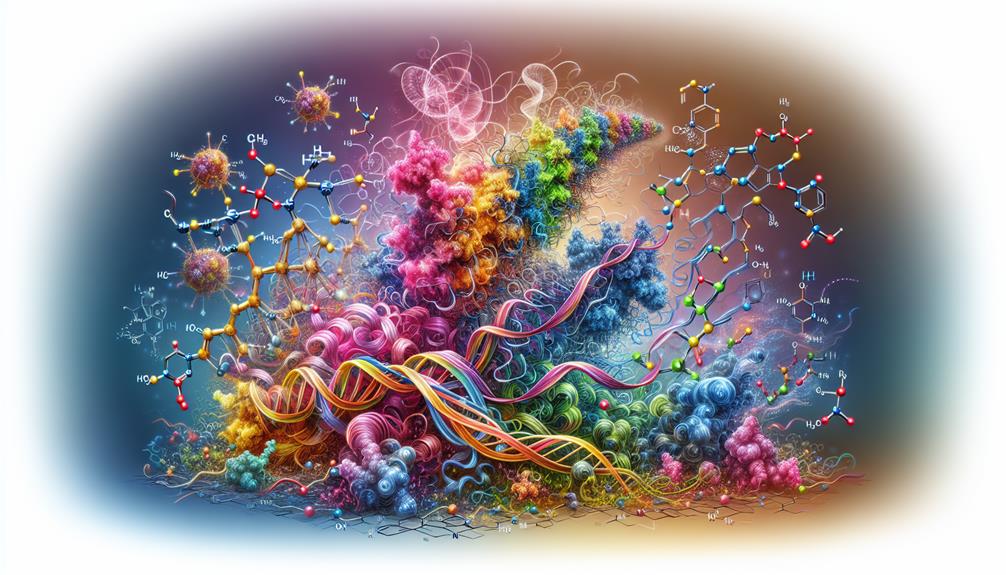
Understanding the role of biotin in protein synthesis is essential for comprehending its impact on metabolic processes and overall health. Biotin plays a vital part in protein metabolism by assisting enzymes involved in the synthesis of amino acids, the building blocks of proteins. This vitamin is particularly important for muscle building, as proteins are fundamental for muscle growth, repair, and maintenance. Adequate biotin levels contribute to efficient protein synthesis, which is essential for ideal muscle function and development.
Moreover, biotin's influence extends to hair growth. Hair is primarily composed of a protein called keratin, and biotin is believed to play a role in maintaining healthy hair follicles. While research on biotin's direct impact on hair growth is ongoing, some studies suggest that biotin deficiency may lead to hair loss or brittle hair. By supporting protein synthesis, biotin aids in maintaining healthy hair structure and promoting hair growth. Ensuring sufficient biotin intake through diet or supplementation is crucial for supporting both muscle building and hair health.
Biotins Influence on Fatty Acid Metabolism
To grasp the full scope of biotin's impact on metabolic processes, it is important to explore how it influences fatty acid metabolism. Biotin plays a pivotal role in fatty acid oxidation, which is the process of breaking down fatty acids to generate energy. It acts as a coenzyme for carboxylase enzymes involved in fatty acid metabolism. These enzymes are essential for converting fatty acids into acetyl-CoA, the primary substrate for the citric acid cycle that produces energy in the form of ATP.
Moreover, biotin is also involved in lipid synthesis, where it helps in the production of fatty acids necessary for building cell membranes and storing energy. Through its role in carboxylase enzymes, biotin facilitates the conversion of acetyl-CoA into malonyl-CoA, a key building block for fatty acid synthesis. This process is fundamental for maintaining the body's energy balance and providing structural components for various biological functions. In conclusion, biotin's influence on fatty acid metabolism is essential for energy production and lipid synthesis in the body.
Biotins Function in Enzyme Activation
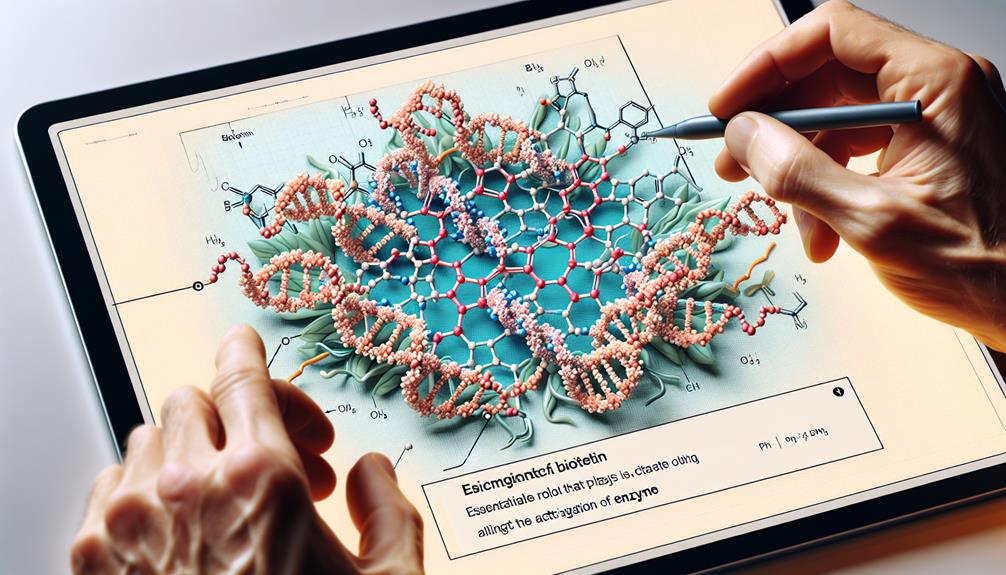
Exploring how biotin functions in enzyme activation reveals its essential role in catalyzing important metabolic reactions. Biotin acts as a cofactor for carboxylase enzymes, such as acetyl-CoA carboxylase and pyruvate carboxylase, which are critical for fatty acid synthesis and gluconeogenesis. By attaching to these enzymes, biotin facilitates the transfer of carboxyl groups during metabolic processes, aiding in the conversion of substrates into energy or building blocks for cellular functions.
Moreover, biotin plays a significant role in maintaining healthy hair growth and skin health. Its involvement in fatty acid synthesis impacts the production of fatty acids necessary for healthy skin and hair. Biotin deficiency can lead to symptoms like hair thinning, brittle nails, and skin rashes. To treat biotin deficiency, supplementation with biotin-rich foods or biotin supplements is recommended. The adequate intake of biotin ensures proper enzyme activation, supporting metabolic pathways essential for overall health and well-being.
Biotin and Gluconeogenesis
Biotin plays an important role in gluconeogenesis by serving as a cofactor for pyruvate carboxylase, an enzyme essential for converting pyruvate into oxaloacetate in the liver. Gluconeogenesis is the process through which the body synthesizes new glucose molecules from non-carbohydrate sources like amino acids, lactate, and glycerol. Biotin's involvement in this pathway guarantees that pyruvate can be efficiently converted into oxaloacetate, a critical step in generating glucose for energy production.
When considering biotin's role in metabolic processes, it is crucial to acknowledge its connection to ketogenesis. Biotin deficiency can lead to impaired ketogenesis, the process where the body produces ketone bodies as an alternative fuel source when glucose levels are low. Without sufficient biotin, this process may be disrupted, affecting the body's ability to utilize fats for energy effectively.
Furthermore, biotin deficiency consequences extend beyond ketogenesis issues, potentially causing symptoms such as hair loss, skin rash, neurological disturbances, and metabolic complications. Ensuring an adequate intake of biotin through diet or supplementation is crucial for supporting these metabolic processes and overall health.
Biotins Role in Maintaining Blood Sugar Levels
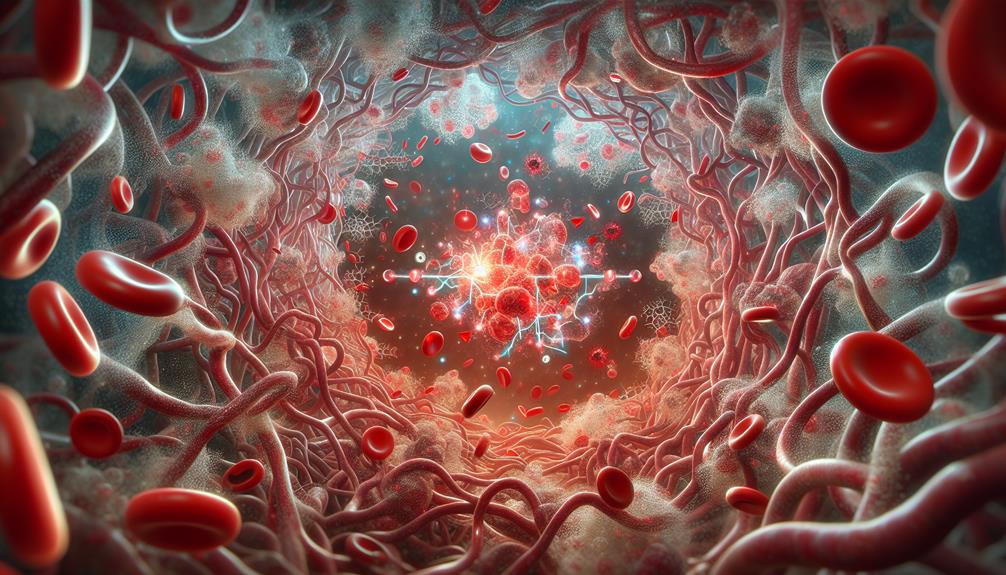
In understanding how biotin influences metabolic processes, it becomes evident that its role extends to maintaining blood sugar levels in the body. Biotin plays a vital part in regulating blood sugar by enhancing insulin sensitivity, a pivotal factor in glucose metabolism. Insulin, a hormone produced by the pancreas, is essential for the uptake of glucose into cells for energy production. Biotin aids in this process by supporting enzymes that participate in the metabolism of carbohydrates, fats, and proteins, influencing how cells respond to insulin.
Biotin and Hormone Regulation
Hormone regulation is an essential aspect of biotin's impact on metabolic processes, influencing the body's overall hormonal balance and function. When faced with biotin deficiency, hormone regulation can be disrupted, leading to potential imbalances in insulin production, thyroid function, and adrenal hormones. Biotin plays a critical role in supporting the synthesis and activity of hormones involved in metabolism, such as insulin, which is essential for glucose regulation. Additionally, biotin is known to affect the production of thyroid hormones, which are key regulators of metabolism and energy expenditure.
Supplementation with biotin has shown promise in helping maintain hormone balance. Studies suggest that biotin supplementation can positively influence insulin sensitivity and secretion, potentially aiding in the management of conditions like diabetes. Additionally, biotin has been linked to supporting healthy thyroid function, which is essential for regulating metabolism. By ensuring an adequate intake of biotin, you may help support proper hormone regulation and overall metabolic health.
Biotins Contribution to Cell Growth and Repair
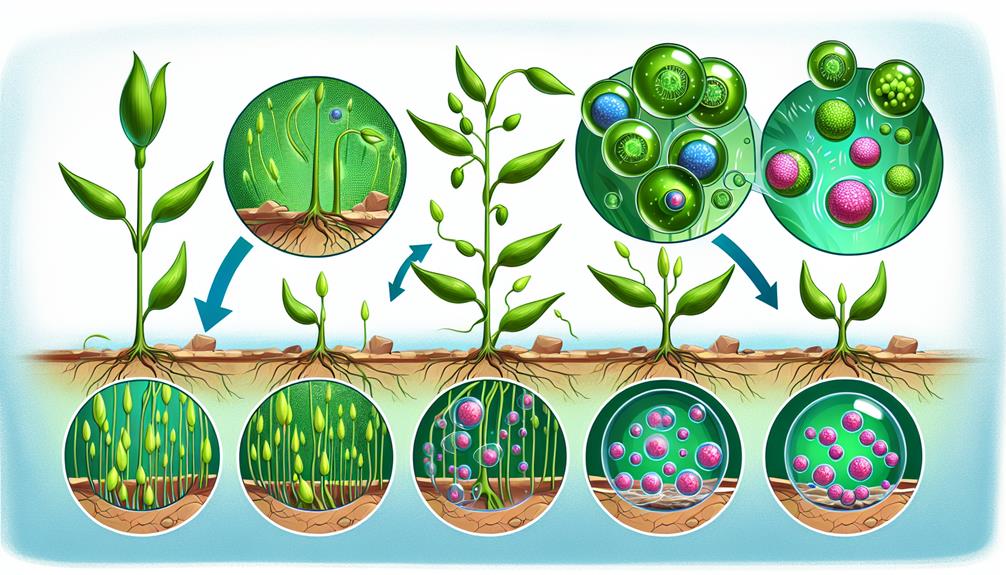
When looking at the broader impact of biotin on metabolic processes, one area of significant importance is its role in supporting cell growth and repair. Biotin plays an essential part in cell division, a process critical for growth, development, and tissue regeneration. Within cells, biotin is involved in gene expression and regulation, impacting the production of proteins necessary for cell proliferation and repair.
Cell growth relies on the ability of cells to divide and multiply, a process tightly regulated by various cellular factors, including biotin. Biotin's involvement in cell division guarantees that new cells are continually formed to replace damaged or old cells, contributing to overall tissue regeneration and maintenance.
Moreover, biotin aids in repairing damaged tissues by facilitating the synthesis of essential molecules required for tissue regeneration. By supporting cell growth and repair mechanisms through its involvement in cell division and tissue regeneration, biotin plays a crucial role in maintaining the body's overall health and functionality.
Biotins Impact on Lipid Metabolism
Biotin profoundly influences lipid metabolism by actively participating in key biochemical pathways regulating the breakdown and utilization of fats in the body. In lipid synthesis, biotin acts as a cofactor for enzymes involved in fatty acid synthesis, playing a critical role in converting raw materials into fatty acids. This process is essential for the production of cellular membranes and energy storage. Additionally, biotin aids in regulating gene expression related to lipid metabolism, influencing how fats are synthesized and stored in the body.
Conversely, biotin also impacts lipid breakdown by facilitating fatty acid oxidation. This process involves converting fatty acids into energy through a series of metabolic reactions. Biotin's involvement in fatty acid oxidation maintains a proper balance between storing and utilizing fats for energy production. Maintaining this equilibrium is crucial for overall metabolic health and energy homeostasis. To summarize, biotin plays a multifaceted role in lipid metabolism, impacting both lipid synthesis and breakdown to support various metabolic processes in the body.
